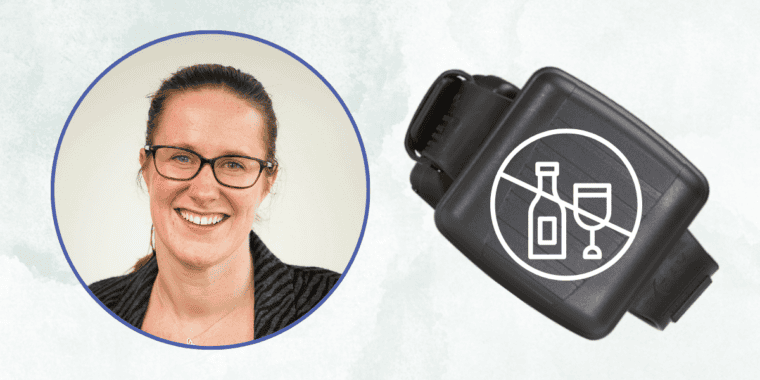
Alcohol monitoring tags – or ‘transdermal alcohol monitoring devices’ – were rolled out in 2020 and have been used for people serving criminal sentences in the community whose drinking contributed to their offending and therefore subject to an alcohol abstinence monitoring requirement for up to 120 days. The idea is that while wearing the tag, the wearer cannot drink alcohol otherwise it will be detected in their sweat, probation authorities would then be alerted, and the individual could be called to court to face the prospect of further sanctions. Ultimately, the aim is to reduce alcohol-related violence and crime.
Up until now, when discussing the efficacy of the tags, the government has highlighted the high compliance rate, stating that 97% of wearers remained alcohol free whilst wearing the tag. However, this does not consider whether or not the tags successfully reduce reoffending.
My new study looked into this, using probation and magistrates’ courts datasets relating to England and Wales made available through the Ministry of Justice led Data First programme. I found that compliance was lower than what previous research has found, at 78%. However, I did find evidence that tags reduced the likelihood of reoffending – wearers were on average 33% less likely to reoffend (controlling for similar offence and demographic profiles). Read my blog on the findings here.
Despite these encouraging findings, I still urge caution about tagging, given the limitations of my study, but also as we need to further understand – beyond crude distinctions between dependent and non-dependent alcohol users – what type of alcohol interventions work and for what type of drinker (e.g. light versus heavy drinkers). Understanding how people’s alcohol consumption, offending behaviours and motivations to change interact with these interventions will help correctly determine eligibility for ‘suitable’ alcohol requirements and avoid inappropriate requirements being added to court orders.
It is also important for policy makers to reflect further on the treatment components as well as the punitive and rehabilitative ideals sitting behind alcohol tagging, especially as the viability of court-enforced alcohol abstinence is contested and alcohol tags only monitoring people’s alcohol use rather than extending them help for their drinking problems or associated offending.
There is also a lot that could be done to reduce harm and crime associated with alcohol consumption that doesn’t involve criminal justice interventions. In a 2022 blog for IAS, I highlighted that alcohol tags extend the criminal justice approach to alcohol use, targeting individuals’ drinking through punitive measures rather than tackling the underlying health and social issues related to alcohol problems.
My recent study findings offer important insights into whether alcohol tags are working for those serving criminal sentences in the community. However, alcohol tags are now also available for prison leavers in England and Wales and their use amongst this population has not yet been evaluated. The learning and considerations resulting from my study will thus also have bearing on further research and evaluation of alcohol tagging amongst prison leavers in due course.
Indeed, given the political appetite for alcohol tagging in criminal justice contexts, my study encourages further reflection on the challenges associated with appropriately identifying eligible recipients and allocating alcohol tags appropriately. It offers the following policy recommendations:
- Conduct a national evaluation of the use of alcohol monitoring tags in community sentencing
- Review policy and practice protocols as well as practitioner training on eligibility for alcohol tagging
- Consider how best to support a range of alcohol users (beyond simplistic dichotomies of dependent and non-dependent drinkers)
- Evaluate the national roll out of alcohol tagging for prison leavers
- Improve the identification of alcohol-related offending in criminal justice data to assist produce high quality research and evaluation studies
Written by Dr Carly Lightowlers, Senior Lecturer in Criminology, University of Liverpool
All IAS Blogposts are published with the permission of the author. The views expressed are solely the author’s own and do not necessarily represent the views of the Institute of Alcohol Studies.
